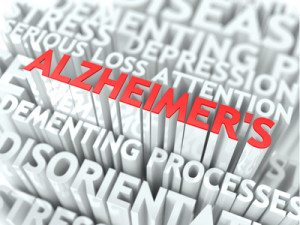Balanced Diet
 Eating a healthy and balanced diet is an important component of maintaining good health for all people, but it is especially important for people with Alzheimer’s Disease because poor nutrition may increase behavioral symptoms and cause weight loss.
Eating a healthy and balanced diet is an important component of maintaining good health for all people, but it is especially important for people with Alzheimer’s Disease because poor nutrition may increase behavioral symptoms and cause weight loss.
A diet that includes a variety of healthy foods such as whole grains, fruits, vegetables, low fat dairy and lean proteins is a major component of optimizing nutritional status.
Several nutrients (certain dietary fats and antioxidants) are thought to play a role in the prevention and treatment of Alzheimer’s, though further scientific evidence is still needed to establish specific recommendations.
As cognitive function declines, people with Alzheimer’s Disease are at risk for becoming malnourished. They may become overwhelmed if given too many food choices, have difficulty using utensils or forget to eat altogether.
By having a Dietitian, a credentialed nutrition expert, on your treatment team, you can receive valuable education and guidance to make sure you meet your nutritional needs.
Dysphagia
For people with dementia, swallowing problems (dysphagia) are common. If you experience any difficulty chewing or swallowing, check with your doctor or a speech-language pathologist to see if you need to follow a special eating plan with modified textures of foods and/or beverages. A Dietitian can provide education on modified texture diets and assist with meal planning and cooking tips to meet an individual’s needs.
Weight Management
Unplanned weight loss is common for people with Alzheimer’s Disease. This often occurs because of loss of appetite, which may be due to medication side effects, decreased physical activity, altered sense of taste and smell, and slowed movement or feeding difficulty. Malnutrition often accompanies this type of weight loss and can significantly weaken the immune system. Therefore, eating a nutrient- and energy-rich diet is important for maintaining a healthy body weight. Limiting distractions during meals as well as serving finger foods or providing modified utensils may help support adequate food intake. Some people may require a nutritional supplement between meals to provide extra calories, protein and micronutrients if these requirements cannot be met through meals alone. Consulting a Dietitian will allow you to develop a customized meal plan and learn how to modify recipes to achieve your weight goals.
Bowel Regularity
Constipation is a problem experienced by many people with Alzheimer’s Disease. The muscles and nerves of the intestines are also affected by the degenerative process, which means that the stomach empties slower and food takes longer to pass through the digestive tract. A diet high in fiber, with adequate water or fluid intake, is an effective way to help treat constipation. Dietitians are very knowledgeable in this area and can provide information on how to increase fiber in your diet and ensure you are drinking enough fluids.
 Complementary and Alternative Treatments
Complementary and Alternative Treatments
Alternative therapies such as caprylic acid (coconut oil), coenzyme Q10, ginko biloba, coral calcium, huperzine A, and tramiprosate are often marketed to people with Alzheimer’s Disease. Always talk to your doctor before starting a special diet or adding any herbs or supplements to your treatment regimen. For a detailed description of herbs and supplements and any evidence supporting their effectiveness and safety visit http://nccam.nih.gov/health/atoz.htm. Your doctor and a Dietitian can help you sort through this information and make an informed decision about whether or not to take any herbs or other supplements.
Are You Looking for Expert Nutrition Advice?
A Dietitian can help you optimize your nutrition to maintain good health. Click here to search for an MFN Dietitian in your area.
Kristin Hirahatake is a registered dietitian. Kristin is passionate about translating scientific research findings into practical applications that people can directly implement. She continues to maintain an active role in the field of nutrition research by co-authoring peer-reviewed journal articles. Her most rewarding experiences as a dietitian have been to see positive changes and improvements in the lives of her clients.
References
Academy of Nutrition and Dietetics. Nutrition Care Manual: National Dysphagia Diet.
Retrieved January 14, 2014 <https://www.nutritioncaremanual.org/client_ed.cfm?ncm_client_ed_id=178>.
Alzheimer’s Association. Food, Eating and Alzheimer’s. Retrieved January 28, 2014.
<http://www.alz.org/care/alzheimers-food-eating.asp>.
Alzheimer’s Association. Alternative Treatments. Retrieved January 28, 2014.
<http://www.alz.org/alzheimers_disease_alternative_treatments.asp>.
George DR, Dangour AD, et al. The role of nutrients in the prevention and treatment of Alzheimer’s disease: methodology for a systematic review. Eur J Neurol. 2009; 16(1):8-11.

